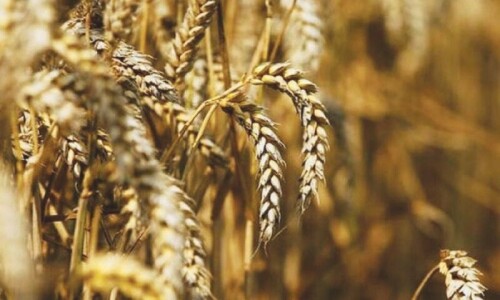PESHAWAR: Deforestation, rising temperatures and air pollution threaten the existence of 7,000 glaciers in Pakistan to cause serious water crisis as glaciers feed rivers, warned provincial coordinator for UN-funded Glof-II (Glacier Lake Outburst Flood) project Fahad Bashir Bangash on Tuesday.
During the ‘Glof-II Project Ground-Truthing Activity Experience Sharing Workshop’ here, Mr Bangash said over 5,000 of those 7,000 glaciers were located in Khyber Pakhtunkhwa and Gilgit-Baltistan.
He said glaciers in Pakistan’s northern mountain ranges including Hindu Kush, Himalayas and Karakoram were melting fast due to the rising temperatures, while 3,044 glacial lakes had emerged in KP and GB. The project coordinator warned that 33 glacial lakes were assessed to be prone to hazardous glacial lake outburst floods.
He said a glacial lake outburst flood (Glof) was a type of outburst flood, which occurred when the dam containing a glacial lake failed.
“Glofs are sudden events, which can release millions of cubic meters of water and debris leading to the loss of lives, property and livelihoods among remote and impoverished mountain communities,” he said.
Mr Bangash said glaciers fed rivers that accounted for around 75 percent of the stored water supply in the country.
He said the project was meant to reduce climate-induced risks of Glofs in selected GB and KP districts, fill knowledge gaps and information about Glofs, update glacial lake inventory, and reduce human and material losses of vulnerable communities through establishment of community based early warning system.
The project coordinator said Glof-II would also sensitise the vulnerable community to Glof disaster, its mitigation and adaptive measures and installation of hardware components.
“We are also working on the empowerment of communities to identify and manage the risks associated with Glofs and other related impacts of climate change and strengthening of public service systems to lower the risk of Glof-related disasters,” he said.
Mr Bangash said the strengthening of sub-national institutional capacities to plan and implement climate change-resilient development pathways, scaling up of community-based early warning system and long-term measures to increase communities’ adaptive capacity was also part of the project.
Dr Mohammad Fahim Ahmad of the Pakistan Meteorological Department said glaciers affected by climate change in KP were located in Arakari, Sor Laspur and Madaklasht of Chitral district, Kumrat valley of Upper Dir, Gabral (Utror), Mataltan and Bishigram of Swat, Kandia, Leo (Pattan), Auchai of Kohistan and Kaghan area of Mansehra.
He said on the basis of field visit regarding the Arkari valley, Ghochanel lake was found to be highly vulnerable to outburst and that it could cause damage to agricultural land, orchards, livestock, buildings and residents.
Published in Dawn, December 4th, 2019













































Dear visitor, the comments section is undergoing an overhaul and will return soon.